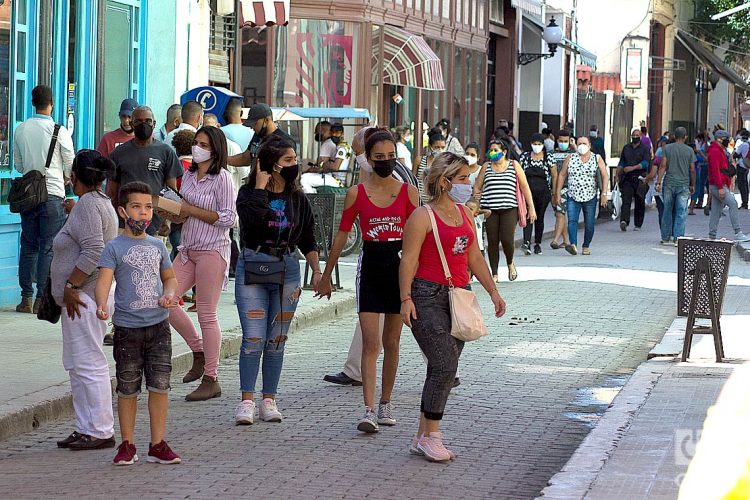Experts pointed to “pandemic exhaustion” as one of the causes of the low perception of risk in the Cuban population in the face of the increase in COVID-19 infections, at a time when the island is going through its worst coronavirus outbreak.
The national director of Epidemiology of the Cuban Ministry of Public Health (MINSAP), Dr. Francisco Durán, said this Tuesday that despite the educational messages, measures and actions that have been established in the country, the perception of risk is not good, with an average of more than a thousand cases per day in April.
The 0.54% lethality caused by the virus on the island, lower than that of the world (2.17%) and that of Latin America of (2.41), is one of the factors that have an influence on Cubans’ erroneous view about the disease, according to the criteria of the specialists, cited by Juventud Rebelde.
So far Cuba does not report deaths under 20 years of age due to COVID-19 thanks to the efforts of pediatricians and intensivists, in addition to the strict protocol applied to pediatric patients, as well as to all positive cases, Durán stressed in a press conference at the headquarters of the Pan American Health Organization (PAHO) in Havana.
This and the fact that 93% of those infected with SARS-CoV-2 on the island so far have recovered are also, in the opinion of the specialist, “factors that influence the erroneous view” of the Cubans about COVID-19.
However, the epidemiologist insisted that some of those recovered later have aftereffects and these can be perceived a year after the pandemic was declared.
Cuba: study reveals sequelae of COVID-19 in patients who got to intensive care
During the meeting, the PAHO representative in Cuba, Dr. José Moya, explained that “pandemic exhaustion is a phenomenon that affects the mental health of people worldwide, and of all types of citizens.”
Moya commented that from the beginning of the vaccination the perception of risk in people has decreased, which represents a danger and more so if the pace of immunization is not adequate.
“We feel calmer, but this is a progressive process, which is slow in the region (Latin America) depending on the availability of vaccines,” he said.
According to the publication, the director of the regional organization recognized the island’s work as the first country in Latin America and the Caribbean to develop its own vaccine candidates, with which it hopes to immunize its population before the end of 2021.
The most advanced, Soberana 02 and Abdala, are already in phase III of their clinical trials and population intervention studies are being carried out, which should be extended in the coming months as a step prior to mass vaccination. However, the efficacy of the Cuban candidates is yet to be known, which must be reported upon completion of the studies, and especially after confirming the circulation of the most contagious strains on the island.










